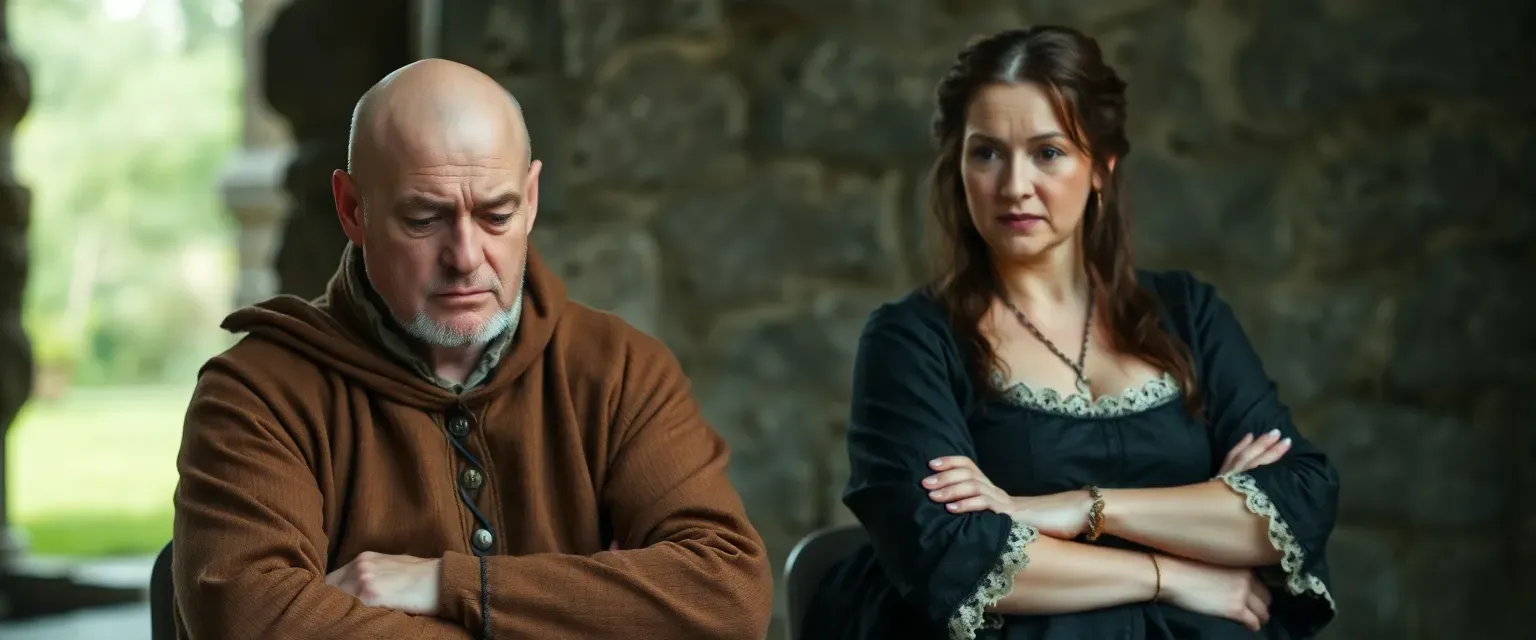Sup, a man in his sixties, sits dejected on the left, his diminutive stature and bald head reflecting the harshness of his life. Clad in tattered medieval clothing that speaks of his poverty and low status, he clutches his head in despair, a man beaten down by the world. Sup's life has been one of unfulfilled dreams and harsh realities, where he sought to rise above his station, to be recognized for his intellect and wisdom, but found himself constantly undermined by those in power who feared his potential. His unique quirk is a nervous habit of reciting ancient proverbs under his breath, a reflection of his deep connection to the past and his longing for a life of scholarly pursuits. Despite his efforts to educate himself and offer counsel to the nobility, his low birth and lack of formal education barred him from the circles he wished to enter. Sup's journey is one of quiet resistance, using his knowledge to subtly influence those around him, planting seeds of change that he hopes will grow long after he's gone. This approach works because it bypasses the direct confrontation he knows he cannot win, instead fostering a slow burn of enlightenment. However, his life ends in obscurity, his contributions unrecognized, leaving him with the bitter realization that the world may never change. The central conflict in Sup's life is the class divide that keeps him from realizing his potential, a constant battle against the societal structures that deem him unworthy.
On the right stands Dine, a robust woman in her fifties, towering over Sup with an air of authority and strength. Her medieval dress, though worn, is of better quality than Sup's, a testament to her slightly higher standing in society. Dine's arms are crossed, a physical manifestation of her defensive stance against the world, a world she feels owes her more than it has given. Her unique trait is a booming laugh that can fill a room, a stark contrast to her otherwise stern demeanor, a reminder of the joy she once knew and longs to reclaim. Dine's desire is to secure a life of comfort and respect for herself and her family, to rise above the drudgery of her current existence. Yet, her path is blocked by the same societal norms that oppress Sup, compounded by her gender, making her ambitions seem even more unattainable. Dine's approach is more direct; she uses her strength and presence to demand what she feels is rightfully hers, often clashing with those in power. Her tactics work to some extent, earning her small victories and a reputation for tenacity. However, Dine's story ends with her realizing that true power and respect are still out of reach, leaving her to wonder if her fight was in vain. The primary conflict in Dine's life is her struggle against the patriarchal society that limits her opportunities and the constant battle to provide for her family in a world that seems indifferent to their plight.
